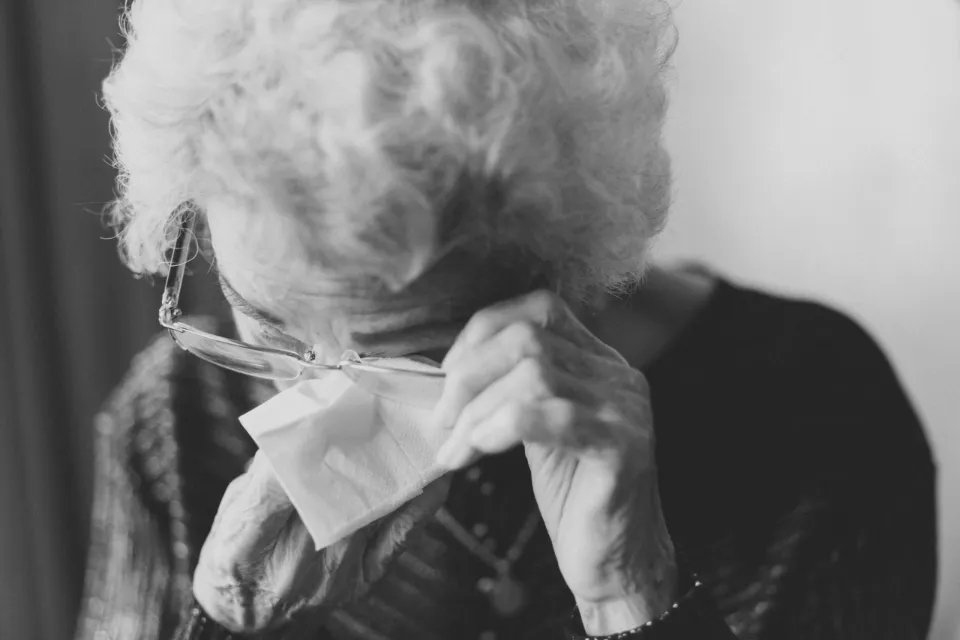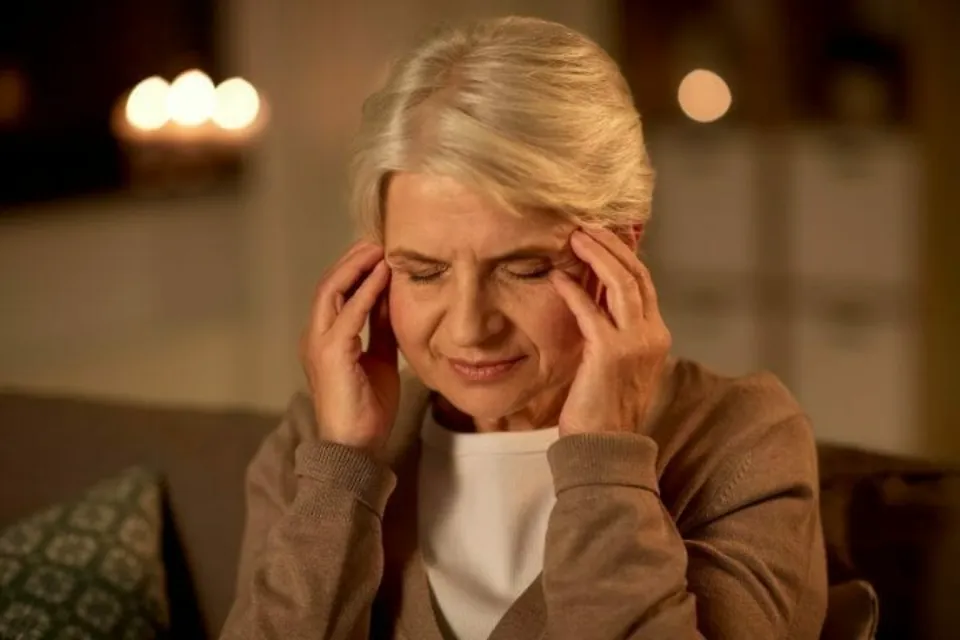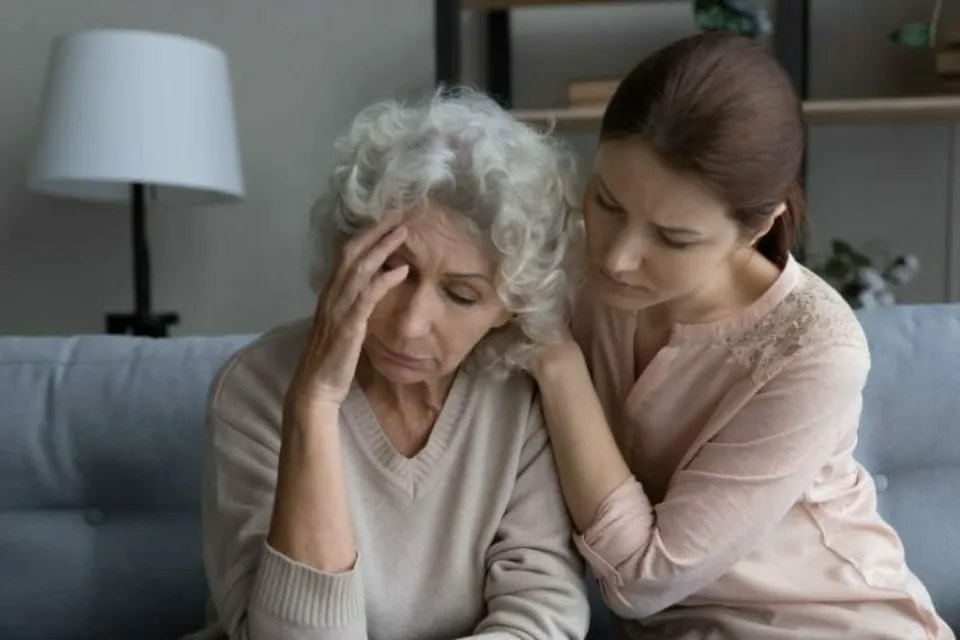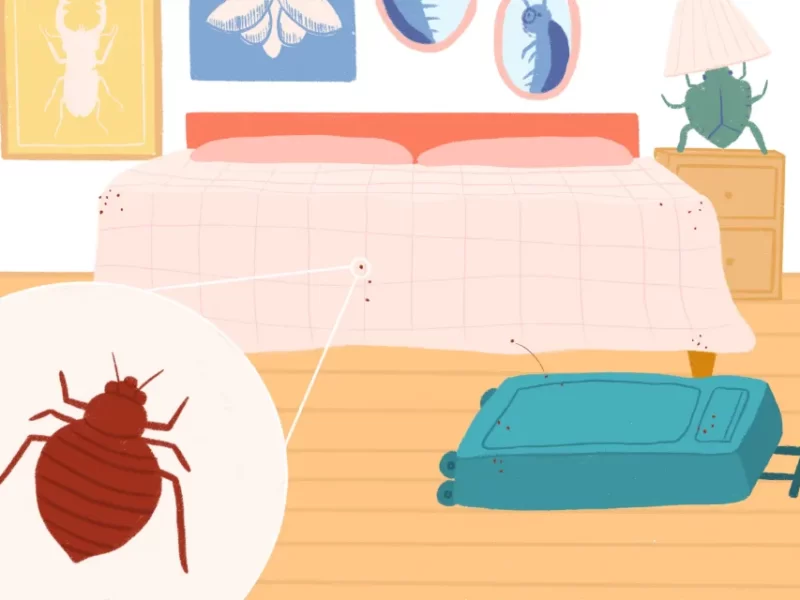Naturally, as your elderly mother ages, you worry about both her physical and mental well-being. She should be content, of course. What if, however, it appears that your ailing mother is never content?Your elderly mother’s mood can be affected by a variety of things, including loneliness and social isolation, depression, drug side effects, medical conditions, and other things.
Here are some warning signs and actions you can take to help your mom rediscover true happiness and embrace everything life has to offer.
Causes: My Elderly Mother was Never Happy
You must first determine the cause of your mother’s unhappiness. Below, we’ll go over some of the most typical causes of elderly mother dissatisfaction and what you can do to help.
Lonely Feeling
A quarter of people 65 and older are regarded as socially isolated, compared to more than one-third of people over the age of 45 who experience loneliness. Serious health issues are made more likely by loneliness, including a 50% increased risk of dementia and higher rates of depression and anxiety. A 32% increased risk of stroke and a 29% increased risk of heart disease are also linked to isolation and loneliness.
If you notice that your mother is becoming more and more needy or if you notice that she is spending a lot of time alone or less time with her family and friends, loneliness may be the cause of her unhappiness.

Consider whether it’s time for her to move into a retirement community or look into local opportunities for senior citizens at senior centers. Your mother will have plenty of opportunities to interact and socialize with other adults in the same stage of life during her days at a continuing care retirement community because life there is vibrant.
Furthermore, with various levels of care (independent living, assisted living, skilled nursing care, etc.) available on the same campus.), you’ll have peace of mind in knowing that her care needs will be met as they change throughout her life.
Side Effects of Drugs
This is always a good place to start eliminating possibilities if your mother recently started taking a new medication. For more information on possible side effects of new medications, consult the patient information packet or speak with your mother’s physician or pharmacist.
Consult your mother’s doctor if you believe a new medication may be causing her unhappy mood. There might be treatments for the side effects she’s experiencing or alternative medications she can use. And occasionally, side effects are transient, meaning they gradually get better or disappear altogether.
Bad Sleep
Anybody’s mood may be impacted by sleep disruptions. If so, how many hours a night does your mother sleep well? Smartwatches and other devices can be used to monitor her sleep quality, or you can spend a night doing it yourself. Pay attention to details like how frequently she gets up to use the bathroom or get a drink, whether she is restless at night, and how long it takes her to fall back asleep after awakening during the night.
You should also pay attention to how refreshed she seems to be when she wakes up for the day and whether she has trouble staying awake while engaging in routine daily activities like watching television. If you suspect she is having trouble falling or staying asleep, consult her doctor. To determine the cause of the issue, such as a sleep disorder, she might need to undergo a sleep study. Simple adjustments, however, like maintaining a regular bedtime routine, frequently prove beneficial.
Cognitive Decline
Another frequent cause of depression, gloom, or irritability in older people is cognitive decline. In fact, because dementia can result in personality changes, the signs of both conditions can be similar. If your mother is suffering from cognitive decline, she might be angry with herself because she struggles to complete routine tasks that she used to complete without issue or because she is becoming more forgetful. Not only is it annoying to forget where you put the car keys, but worrying that you might be losing your cognitive abilities or just getting older can also make you anxious, which can make you irritable.
Depression
The CDC estimates that depression affects 15–20% of seniors 65 and older. Although depression is common in older adults, it is not a natural part of aging, so the warning signs shouldn’t be disregarded. These signs and symptoms may indicate that your elderly mother has depression:
- Feelings of worthlessness
- Lack of interest in activities she once enjoyed
- Decreased energy or fatigue
- Irritability
- Changes in appetite
- Changes in sleep (sleeping more or less than normal)
- Feelings of hopelessness
- Difficulty concentrating on tasks or remembering things
- Physiological symptoms such as digestive problems, headaches, or persistent aches and pains
- Thoughts of suicide or suicide attempts
Clinical depression must be distinguished from regular, occasional sadness, but this distinction can only be made by a licensed healthcare professional. Speak with her healthcare provider right away if you think your mother may be depressed. They’ll be able to correctly diagnose the problem and suggest the best course of action for treating your mother’s symptoms.
Treatments: What Should You Do to Reverse This Situation
When dealing with an elderly mother who is never content, there is no one right way to do it. And there is no assurance that you will be able to fix her in the future. You are not alone, though, I can say that with certainty. You can handle the situation most successfully by using the strategies listed below.
Try to Connect With Her on a Deeper Level
She most likely refused your attempts to persuade her to schedule an appointment with a therapist. Or perhaps she was uncooperative when you did take her to the therapist. Such a reaction is perfectly normal and, in some ways, anticipated.
It can be difficult for your mother, who is going through a difficult time, to trust others (in this case, the therapist or a third party).
By getting her to talk about her day and her feelings, you can try to act as her informal therapist. I understand how exhausting it will be to listen to her talk, but you can endure it until things improve. You can ask her to see a real therapist once she has regained consciousness.

Take Them for a Health Checkup
As a person ages, more frequent health exams become necessary. You need to keep an eye out for any potential changes in your mother’s body. Therefore, schedule a visit with the local physician.
What type of tests are needed:
- Physical examination to diagnose muscular and bone injuries
- Blood pressure test
- Blood lipid level test
- Cancer test
- Vision test
- Hearing test
- Periodontal test
- Thyroid test
- Blood sugar level test
Take Her Out for Shopping, Dinner, Etc
Your mother may be acting negatively out of boredom, which is entirely possible. As they get older, seniors frequently fail to maintain their relationships. They lose their friends to illness or aging.
Take your mother to dinner, the mall, or some other enjoyable activity. Although it is not necessary to take her out every day, doing so once or twice per week can drastically improve their quality of life.
Within a month of going out with your mother, you will notice positive signs if loneliness or boredom are the root causes of her unhappiness.
Whom to Ask for Help?
I always advise families to discuss their worries with a relative’s doctor, of course. Most concerns families have about an aging parent do track back to underlying medical problems that should be identified and addressed.
Nevertheless, a lot of family practitioners lack the time and expertise necessary to offer the best assessment and assistance. Consider scheduling a specialty consultation with a neurologist, memory clinic, or geriatrician if her primary care physician doesn’t seem to be very helpful. (For information on where to find a geriatrics consultation, see this post.) This ought to help you comprehend what physical and mental issues may be influencing your mother’s behavior.
Geriatric care managers can provide excellent, real-world guidance for overcoming daily obstacles, but this typically comes at a cost.
Conclusion
I hope some of this guidance will be useful. This is a difficult situation to handle, but if you’re persistent in your research and persistent in considering alternative strategies, you might find one that relieves your family’s suffering.
FAQs
What Are the End of Life Behaviors in the Elderly?
Increased sleep, drowsiness, and/or inattentiveness. Even if they are not responding, it’s still important to talk to them directly and as if they can hear you. At the end of life, patients frequently lose consciousness and may become comatose, but the majority can still hear even after they are unable to speak.
What Causes Weakness in Elderly?
Chronic diseases like diabetes, heart disease, kidney disease, liver disease, thyroid disease, and chronic obstructive pulmonary disease. fibromyalgia and untreated pain are both diseases. A number of sleep disorders, including anemia.



